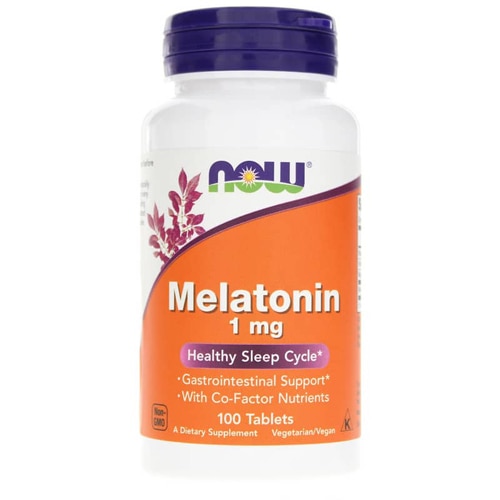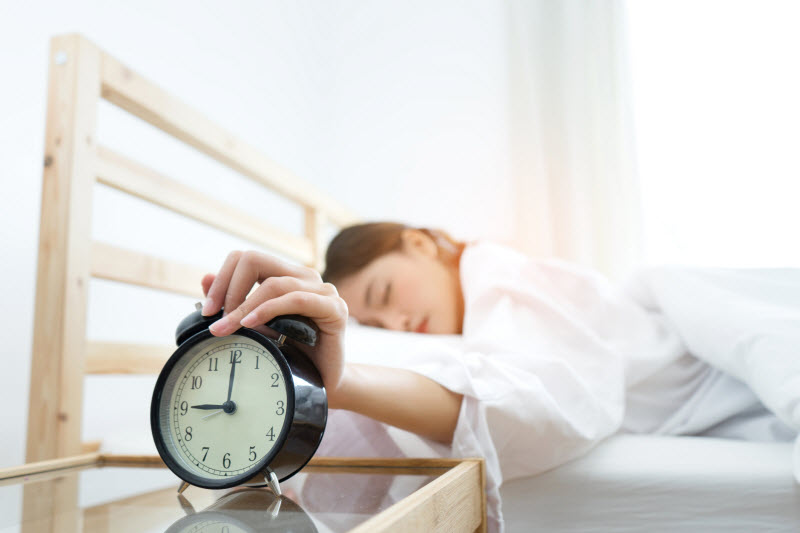As children, bedtime was an event. We bathed and brushed our teeth. Nightlights gave our rooms a soothing glow. Our parents tucked us in. Perhaps, even, a bedtime story was told. While some of us may have gone kicking and screaming under the sheets, sleep was treated as a priority.
As adults, however—particularly those who are in the throes of schooling or their careers—bedtime is a different story, one that frequently involves putting down our phones only at the very last second and stressing about what will happen when the alarm clock sounds. We may have become inured to our bedtime habits—from falling asleep to The Late Show to texting under the covers—but our bodies suffer.
Mounting research indicates that good, restorative sleep—the sort that arrives after seven to nine hours of uninterrupted shut-eye—is key to not only physical health but also to brain power. Without it, we may experience everything from a short temper to crushing fatigue to an increased risk for obesity, heart disease and diabetes.
The solution? Creating a bedtime routine that’s managed with as much care and thought as when we were children. Here are five dos and don’ts of an ideal get-ready-for-sleep routine so that you can function well all, day, long.
A Bedtime Routine for Adults
1. Don’t: Think You can make up for it on the weekend
Sleep experts agree that the single most important thing you can do—in addition to getting seven to nine hours of slumber per night—is ensuring you stick to a regular sleep schedule (bed by 10 p.m., for example, and up by 6 a.m.).
Why? Your body will ease into the habit and “learn” when it’s time to shut down for the night and when it’s time to rise.
As the National Sleep Foundation puts it, “With regular daily activities, our various body systems are able to prepare for and anticipate events. We naturally become more alert closer to our wake-up time. Our digestive systems become activated in advance of regular meal times in order to more efficiently process food. We start to relax and become sleepy prior to bedtimes. It turns out that these regular daily events serve to anchor our underlying daily rhythms.” Skimp on sleep all week long but sleep in until noon on Sunday and your whole system will go haywire.
Do: Add it to your daily to-do list
We schedule in a litany of things on a daily basis—dentist appointments, workouts, meals. And yet, how many of us pencil in, get to sleep by 9:45 p.m.? Few: According to the CDC, 1 in 3 adult Americans don’t get sufficient sleep. But by literally adding it to your to-do list—by making it a priority as significant as grocery shopping and checking your email—you’ll train your brain to take it seriously too.
2. Don’t: Pour yourself a nightcap
Bouts of insomnia are frequently “solved” with a nightcap—and unwisely so. Sure, alcohol may prompt drowsiness, but it can also interrupt your sleep, lead to dehydration, and result in bad dreams. As Lisa Medalie, PsyD, a behavioral sleep medicine specialist at the University of Chicago, put it to The Huffington Post, “…once alcohol is metabolized hours later, you’re more likely to wake up or start tossing and turning.”
Do: Sip Caffeine-Free Tea
Consuming something—whether it be food or drink—goes hand in hand with most contemporary rituals (is it any wonder why Starbucks sees its most costumers in the morning?) While we all know that eating too close to bedtime can keep us awake by giving us a surge of energy (as well as the potential for heartburn, gas and more), some may overlook the fact that what we drink can sabotage our sleep too. The exception? Decaf, herbal teas. They not only create tranquility but certain types can actually induce sleep. You don’t necessarily need to go with the traditional Sleepytime Tea, either; lavender is especially calming, while chamomile contains an antioxidant, called apigenin, that may help promote sleep.
3. Don’t: Burn the midnight oil
Go-getters around the globe are notorious for working until they just can’t any longer—Elon Musk confesses he’s one of them, and Arianna Huffington followed this until she collapsed and came to with an injury—but the most successful people, it’s been found, have learned to shut off well before bedtime. Neglecting to unwind before heading to bed, checking your email when the lights are out, mulling over what’s due in the next week—all can hijack your brain and keep you from getting the rejuvenating sleep you need. Make a point to close your laptop two to three hours before bedtime, and urge yourself to relax. You’ll be that much fresher and more prepped for successwhen you rise.
Do: Hit up the bookstore
There’s nothing like the convenience of a Kindle or iPad when it comes to carting around leisure reading while traveling. And yet, research shows again and again that the blue light emitted from electronics can wreak havoc on your sleep. How? Because the light delays the release of sleep-generating melatonin. It also, according to SleepFoundation.org, increases alertness and resets the body’s internal clock (or circadian rhythm) to a later schedule. Everyone from that aforementioned Huffington to Barack Obama say they use reading to stave off insomnia and help them sleep, so, to hop on board without affecting your health, pick up a paperback. And if you insist on reading from one of your devices, make sure it’s set to night mode.
4. Don’t: Crush a workout
Staying fit—and at your ideal weight—is key to health, including sleep health. But saving an intense workout until after dinner and too close to bedtime can lead to difficulty sleeping. Why? As the National Sleep Foundation frames it, “An all-out workout is about as far from a calming bedtime routine as it gets. It raises your body temperature, speeds up your heart rate, and stimulates your nervous system.” An early morning sweat session, however, may translate to deeper slumber, the NSF also attests. Your solution? Save your most grueling workouts for daytime hours or early evening, and, if you have excess energy you need to burn off before bed, go for a walk. In doing so, you may also be adding years to your life.
Do: Stretch
It’s hard to get comfy in bed when your tech neck is aching and your lower back feels weighted by the day. To mitigate those twinges and creaks, engage in simple stretching or restorative yoga—both of which can be conducted in bed. For the latter, try a restorative yoga pose, which helps soothe the mind and ground you in place.
5. Don’t: Argue with your spouse
Going to bed angry is a major ravager of sleep. Yes, anger is a healthy, necessary, and inescapable emotion, but it ramps up your production of stress hormones such as cortisol and adrenaline, which could lead to some furious tossing and turning. Keep your bedroom an argument-free zone, and make a deal with your partner that you will address your issue after a good night’s sleep—and preferably after coffee.
Do: Take in the good
Sound sleep doesn’t just make itself known in the beauty department: it also works to strengthen your brain. You can do double-duty by bedding down with gratitude in mind. This may take some work; after all, as Rick Hanson, PhD, says, “the brain is like Velcro for negative experiences, but Teflon for positive ones.” Meaning, at bedtime you may think of everything that went wrong that day—from that dispute with your teenage daughter to the traffic that caused you to be late—but you won’t consider the sweet moment you shared with your daughter at breakfast or the fact that a kind driver let you into his lane.
Reverse this negativity bias by using bedtime to think of at least three things that went right during your day. In doing so, you’ll rewire your brain and encourage it towards lasting happiness and contentment. With the brain “tilted toward absorbing the good,” Hanson says, “instead of positive experiences washing through you like water through a sieve, they’ll collect in implicit memory deep down in your brain. In the famous saying, ‘neurons that fire together, wire together.’ The more you get your neurons firing about positive facts, the more they’ll be wiring up positive neural structures.” Basking in the beauty of a day; of being alive? I can’t think of a better way to get excited about sleep.




